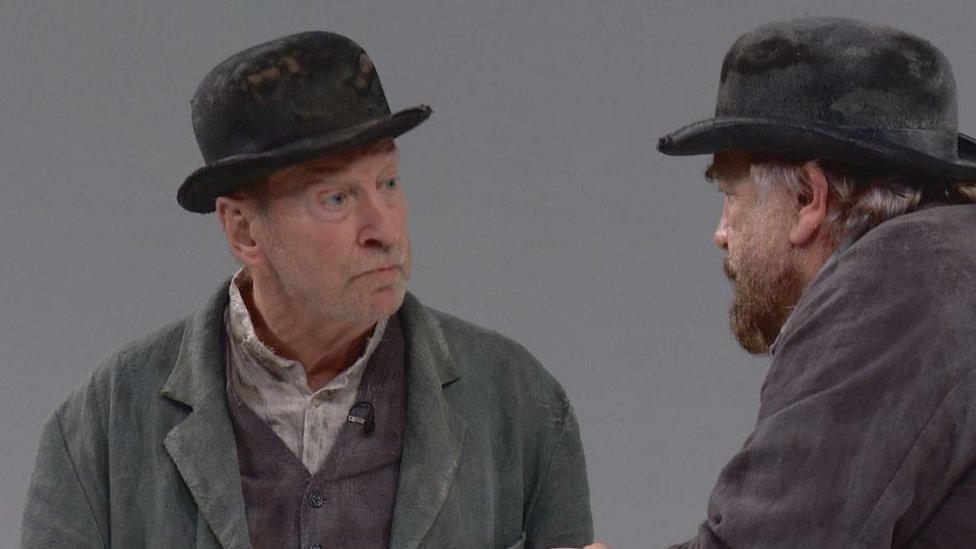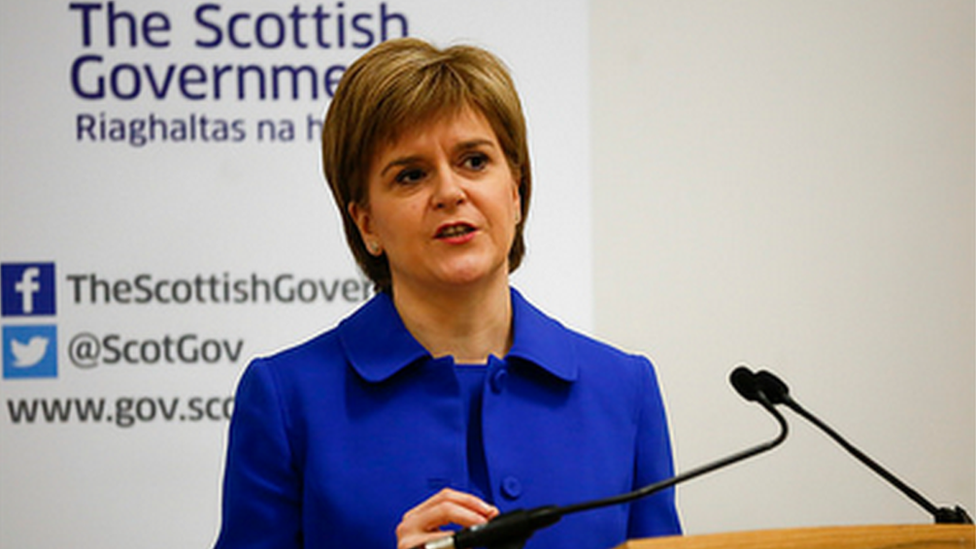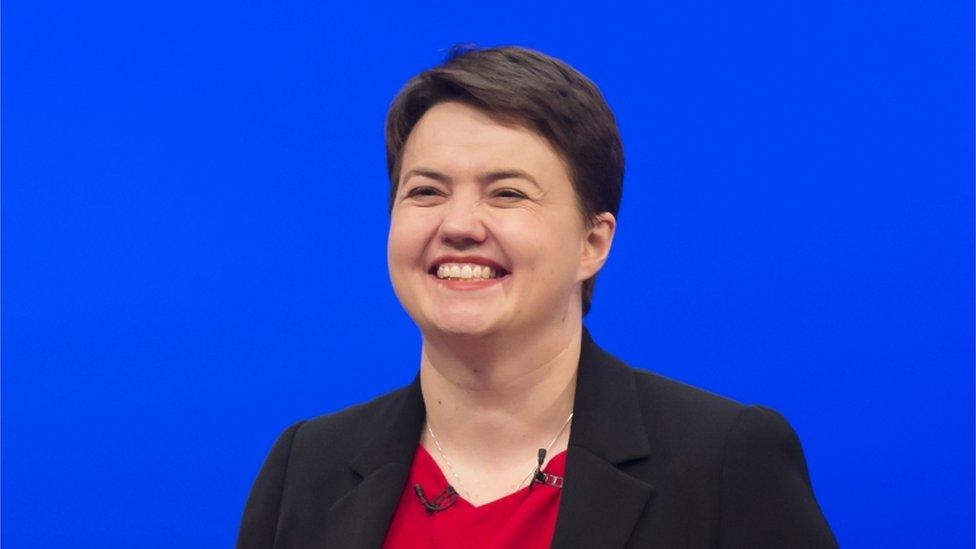Who's in the right on human rights?
- Published

Bill Paterson and Brian Cox in the new production of Waiting for Godot
As a trip to the theatre last night reminded me, narrative frequently works at several levels. But then the play in question was an engrossing production at the Lyceum of Waiting for Godot, with powerful performances by Brian Cox and Bill Paterson.
Absurdist drama is, customarily, excellent preparation for covering political discourse. Today was no exception - although, this time, it was the blend of seeming simplicity and actual complexity which appealed.
The topic in question was human rights legislation. In particular, a speech by the First Minister stressing her opposition to Conservative plans to scrap the existing legislation which allows such cases to be pursued in British courts, rather than primarily in the European Court in Strasbourg. UK Ministers intend a British Bill of Rights instead.
At the simple level, Ms Sturgeon was merely restating her party's opposition to such a move. But at the complex level, she was underlining the dual nature of this dispute: the constitutional and political.
Founding statute
Human rights legislation was entrenched in the founding statute of the Scottish Parliament. Hence Ms Sturgeon's declaration that it is "likely" that the UK Government's moves will require Holyrood's consent.
Which consent, if she has anything to do with it - and she does - would be withheld.
However, note that word "likely". This aspect of the debate is far from clear. Would Holyrood be able to block the entire British Bill of Rights proposed by the UKG and being worked upon by Michael Gove? Or only the elements of human rights that attach to devolved matters? Or not at all?
Is it feasible - there is speculation to this effect - that the UK Government might find a way of somehow sidestepping the devolved problem?
In response, UK Ministers will only say at this stage that they are aware of the issue; that they will consult with all the devolved administrations; and that they would welcome Ms Sturgeon's input during the search for a solution.

Given that Ms Sturgeon's input would amount to "leave well alone", it is unlikely that Mr Gove will find much support from that direction.
Then there is the political. Nicola Sturgeon stresses that her opposition is by no means confined to the Scottish consequences of the proposed changes. She is agin them generally and in their entirety. SNP MPs will vote consistently against the plan in the Commons. Full stop.
Ms Sturgeon believes that any problems with the European Court have been hugely exaggerated; that the planned new Bill risks derogating from existing rights; and that it might give a signal to other governments that Britain is not serious about the issue, liberating them to reduce their own commitment, which may not be all that strong in the first place.
Conservative supporters of the change insist that they have absolutely no objection to the fundamental rights which were enshrined - with British influence to the fore - in the original post-war European Convention.
Their objection is to the European Court in Strasbourg which they accuse of "mission creep" in seeking to state precedent, contrary to Westminster and UK legal sovereignty. They cite examples such as moves to thwart the UK in deporting alleged terrorists.
'Petty point scoring'
Then other political elements. Is this partly a constitutional struggle between Holyrood and Westminster, another chapter in a narrative which is longer but just as engrossing as Becket's masterpiece?
To some extent, yes. But I believe the topic in question is so huge, so fundamental that it ranks well above petty point scoring. Ms Sturgeon appears genuinely exercised by the substance here.
Is it then another version of the long-running controversy over Britain's relationship with Europe? To some extent, yes. Although the European Court has nothing to do with the EU, the language can be comparable and overlapping.
So these two dimensions will persist. The constitutional may become clearer - or not - when the details of the UK Government measures emerge. The political controversy will persist. As one of Becket's protagonists notes: "The essential doesn't change".
- Published22 September 2015
